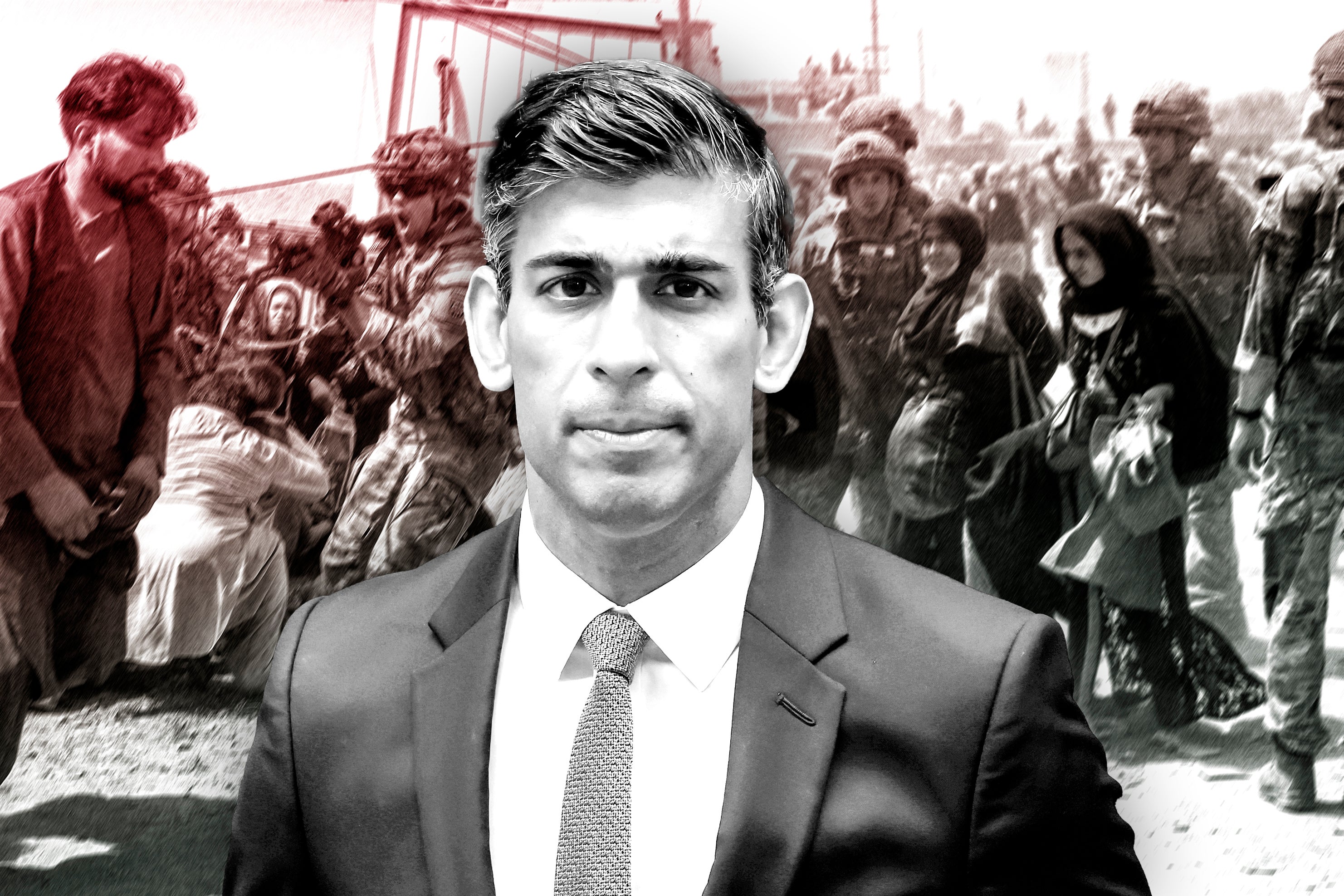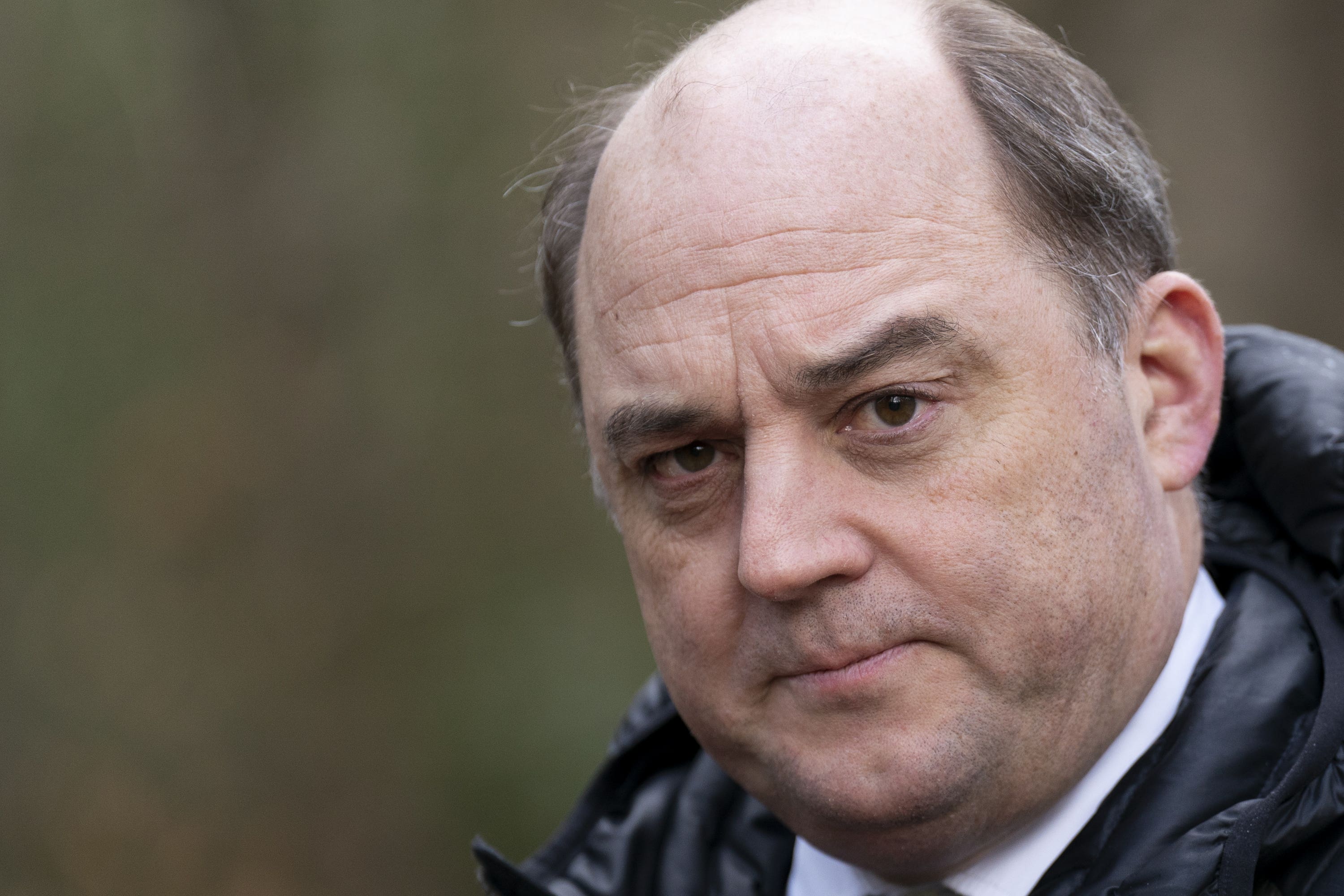How the government fought against The Independent’s Afghan campaign – and was forced to capitulate
Rishi Sunak, his ministers and their officials dragged their heels for five months – saying it was not possible to offer the pilot help and arguing that the rules did not apply to him
Your support helps us to tell the story
From reproductive rights to climate change to Big Tech, The Independent is on the ground when the story is developing. Whether it's investigating the financials of Elon Musk's pro-Trump PAC or producing our latest documentary, 'The A Word', which shines a light on the American women fighting for reproductive rights, we know how important it is to parse out the facts from the messaging.
At such a critical moment in US history, we need reporters on the ground. Your donation allows us to keep sending journalists to speak to both sides of the story.
The Independent is trusted by Americans across the entire political spectrum. And unlike many other quality news outlets, we choose not to lock Americans out of our reporting and analysis with paywalls. We believe quality journalism should be available to everyone, paid for by those who can afford it.
Your support makes all the difference.From the moment we reported on the plight of the Afghan airman, who fought alongside our troops and made his way to the UK only to be threatened with deportation to Rwanda, the groundswell of support was immediate.
Military top brass, members of parliament and our own heroes from the war in Afghanistan united in our pages to demand the government do the right thing and honour our debt to this brave pilot who joined Britain in fighting against the tyranny of the Taliban.
But when this plea was raised with government, from the home secretary to the defence secretary and even the prime minister himself, our call was fought at every turn, with heel-dragging and obfuscation, until finally – after five months – ministers were forced to capitulate. Here’s how it happened.

25 March
We first report on the case of the Afghan pilot, threatened by the Home Office with deportation to Rwanda because he had arrived on small boat across the English Channel. We reveal that his US coalition supervisor told Suella Braverman’s department that he had “risked his life to support his nation’s development and coalition forces in Afghanistan”.
The Home Office lead on the response and say it is “committed to providing protection for vulnerable and at-risk people fleeing Afghanistan”.
The Ministry of Defence (MoD) tells The Independent that it is a Home Office issue.
28 March
Rishi Sunak is questioned about the pilot’s case by senior Tory MP Caroline Nokes during a committee session in parliament. Mr Sunak says people like the airman were “exactly the sort of people we want to help”, and that he would pass on the details to the Home Office.
But No 10 then washed its hands of the case – telling The Independent on 30 March it was a Home Office matter.
29 March
Then-Deputy Prime Minister Dominic Raab is repeatedly challenged by the BBC on whether the pilot would be “chucked out” of the UK.
Mr Raab insists there is a “safe and legal route” to the UK and said the government was determined to crackdown on “criminal gangs who feed the illegal asylum trade”.
30 March
We report on a letter sent directly from the pilot to Mr Sunak, pleading for him to intervene in his asylum claim. “I asked for help in return for the help I once gave your people,” he wrote. But the letter goes unanswered by the PM.
31 March
Defence Secretary Ben Wallace says only that he “would encourage people to apply for the Arap scheme” [The MoD’s resettlement scheme for Afghans who worked for or with British troops] if they fit the requirements. He stresses that they should apply before coming to the UK. It comes alongside a report that the MoD could consider taking up the case under Arap.

15 May
Defence minister James Heappey is grilled on the war hero’s case by MPs in the Commons, but refuses to give a lifeline – saying the airman did not qualify “in principle” for Arap. Mr Heappey says that as “a member of the Afghan national security forces”, rather than somebody who worked directly with British armed forces, he “would not automatically be in scope”.
28 May
The US government adds to the pressure on the Sunak government, making an extraordinary intervention by pledging to look into the pilot’s case as the UK government continues to stall.
3rd April
The Independent presses the Home Office and Number 10 for a response to the pilot’s letter to Mr Sunak. The Home Office says “there is no update”. Number 10 points us to the previous Home Office statement. The Ministry of Defence says it is an issue for the Home Office.
17 June
The Afghan pilot’s application for help to remain in the UK under the Arap scheme is rejected by the MoD on the grounds that he is “not eligible”. The deportation threat remains, meaning the pilot’s asylum claim is not being processed.
1 August
Asked again about his initial asylum claim, the Home Office points The Independent to the MoD’s Arap scheme – but points out that it was “established for a defined cohort of Afghans who had worked directly for, or with, the UK armed forces”.
23 August
In a dramatic turn of events, the Home Office finally accepts that the pilot does indeed have a “well-founded fear of persecution and therefore cannot return to your country of origin”. He is granted refugee status and told he can remain in the UK.





Join our commenting forum
Join thought-provoking conversations, follow other Independent readers and see their replies
Comments